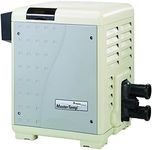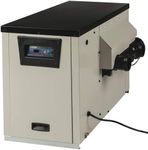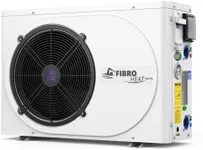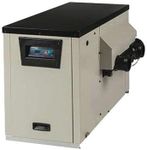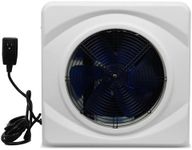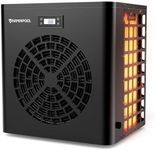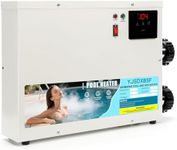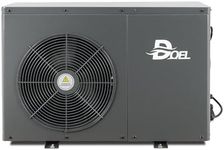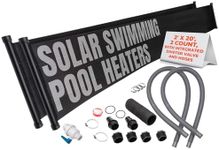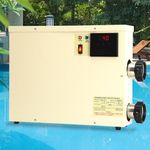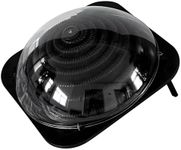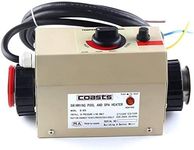Buying Guide for the Best Above Ground Pool Heaters
Choosing the right above-ground pool heater can make a big difference in how much you enjoy your pool, especially if you want to extend your swimming season or keep the water comfortable on cooler days. The best approach is to think about your pool size, how often you swim, your local climate, and how quickly you want the water to heat up. Understanding the main features and specifications will help you find a heater that matches your needs and ensures you get the most out of your pool.Heater TypeAbove-ground pool heaters come in several types, including electric heat pumps, gas heaters (natural gas or propane), and solar heaters. This specification is important because each type has its own advantages and limitations. Electric heat pumps are energy-efficient and work best in warmer climates, gas heaters heat water quickly and are effective in any weather, while solar heaters use the sun’s energy and are most cost-effective in sunny areas. To choose the right type, consider your local weather, how fast you want the pool to heat up, and whether you prefer a more eco-friendly option.
Heating Capacity (BTU Rating)The heating capacity, often measured in BTUs (British Thermal Units), tells you how much heat the heater can produce. This is crucial because it determines how quickly and effectively the heater can warm your pool. Lower BTU ratings are suitable for small pools or mild climates, while higher BTU ratings are better for larger pools or cooler areas. To pick the right capacity, match the BTU rating to your pool’s size and your desired heating speed—bigger pools or faster heating needs require higher BTUs.
Pool Size CompatibilityThis specification indicates the maximum pool size (usually in gallons or dimensions) that the heater can handle efficiently. It’s important because using a heater that’s too small for your pool will result in slow or inadequate heating. Manufacturers often provide guidelines for what pool sizes their heaters are best suited for. To choose correctly, know your pool’s volume and ensure the heater is rated for at least that size.
Energy EfficiencyEnergy efficiency describes how well the heater converts energy into heat for your pool. This matters because more efficient heaters use less energy to achieve the same results, saving you money and reducing environmental impact. Efficiency is often indicated by ratings or percentages. If you want to minimize running costs and environmental footprint, look for heaters with higher efficiency ratings.
Installation and Maintenance RequirementsThis refers to how easy it is to set up and maintain the heater. Some heaters are plug-and-play and require minimal setup, while others need professional installation or regular maintenance. This is important because easier installation and maintenance mean less hassle and lower long-term costs. If you prefer a simple setup, look for models designed for easy installation and low maintenance.
Climate SuitabilitySome heaters work better in certain climates. For example, heat pumps are most effective in warmer weather, while gas heaters can heat pools quickly even in cold conditions. Solar heaters need plenty of sunlight to work well. This is important because choosing a heater suited to your local climate ensures reliable performance. Think about your region’s typical weather when deciding which type of heater will work best for you.
